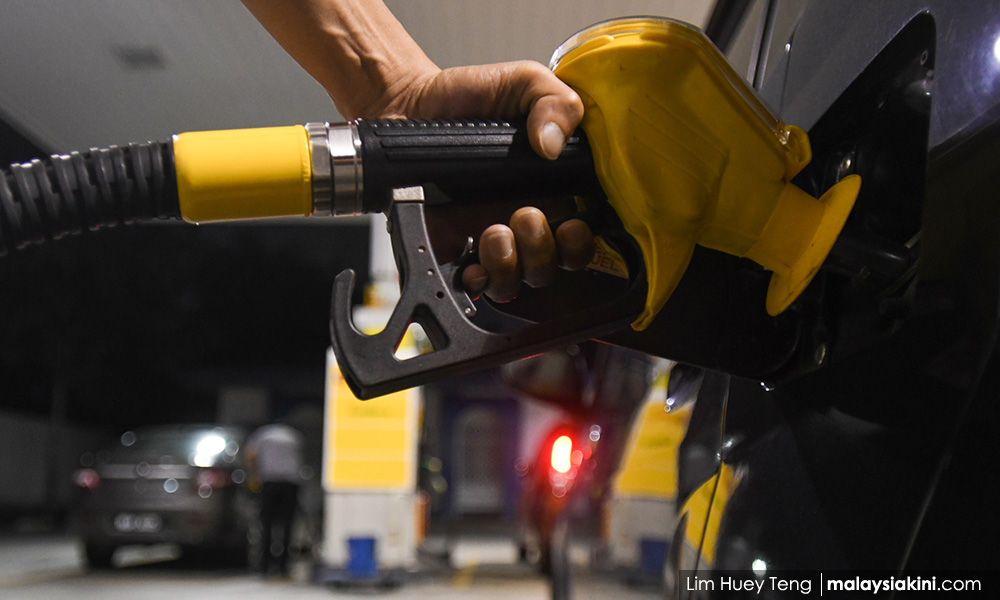Former premier Najib Abdul Razak today justified the managed float system for fuel introduced during his tenure, reiterating that subsidising petrol is unfair for the rakyat, especially the poor.
In a Facebook post, Najib stressed that studies have shown that it is the higher-income group that benefits from petrol subsidies, while the lower-income group loses out.
"How can we say the petrol subsidy is fair, when it benefits a rich person driving a luxury car daily in a busy city, compared to a farmer in a rural area who rides a motorcycle, or a civil servant who travels by LRT to and from work every day, and only uses his car every weekend?
"That is my stance. It is grossly unfair. The rich should not be part of the 80 percent who benefit from petrol subsidies," he said.
The former premier said he was moved to pen his thoughts following criticisms by netizens on his Facebook wall pertaining to petrol prices.
The Pakatan Harapan government, among others, had pledged to reintroduce petrol subsidies – albeit targeted – by doing away the managed float system.
Najib also noted that when he was appointed finance minister on Sept 23, 2008, the prices of RON97 and RON92 stood at RM2.55 and RM2.40 per litre respectively.

"When I was appointed the prime minister in April 2009, one of the first steps I took was abolish RON92, and replace it with a higher quality petrol – RON95, at RM1.80 a litre.
"When BN lost power in May 2018, RON95 cost RM2.20 a litre, where it was priced lower than RON92, at RM2.40 a litre in 2008," said Najib, adding that during his administration, tax was not imposed on petrol, as is common in many countries.
"That is why, even at RM2.20 a litre, it was the 15th lowest priced petrol in the whole world, and on par with prices in Saudi Arabia at the time."
'Dr M taxed petrol'
Najib also pointed out that during Dr Mahathir Mohamad’s first stint as prime minister, he did not subsidise petrol, and taxed petrol 58.62 percent per litre, and diesel 19.64 percent per litre.
This was possible, he added, because global fuel prices then were low, hovering between US$10 and US$20 per barrel, compared to US$75 a barrel now.
In his Facebook post, Najib also hit back at critics who said he did not keep to his word to not increase petrol prices after 2012.
"Many people are influenced by spinning, as what I promised then was that petrol prices would not be increased for the year 2012 alone – a promise which I kept.
"However, the matter was spun in social media to make it seem as if I had promised that petrol prices would not be increased forever.
“Many people do not read news reports in full and are easily conned. Logically, no one would promise not to increase (petrol prices) forever, because it is impossible," he said.
Najib then urged the people to demand the government to bring down petrol prices, as pledged by Harapan in its election manifesto.

